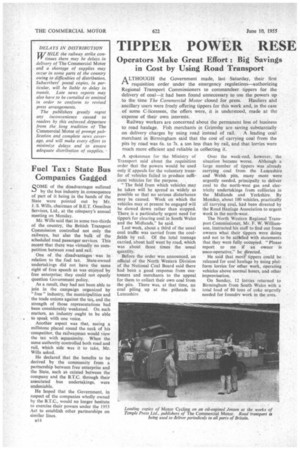Fuel Tax : State Bus Companies Gagged
Page 48

If you've noticed an error in this article please click here to report it so we can fix it.
SOME of the disadvantages suffered by the bus industry in consequence of part of it being in the hands of the State were pointed out by Mr. J. S. Wills, chairman of B.E.T. Omnibus Services, Ltd., at the company's annual meeting on Monday.
Mr. Wills said that in some two-thirds of the country, the British Transport Commission controlled not only the railways, but also the bulk of the scheduled road passenger services. This meant that there was virtually no competition between road and rail.
One of the disadvantages was in relation to the fuel tax. State-owned undertakings did not have the same right of free speech as was enjoyed by free enterprise; they could not openly question Government policy.
As a result, they had not been able to join in the campaign organized by " free " industry, the municipalities and " the trade unions against the tax, and the strength of those representations had been considerably weakened. On such matters, an industry ought to be able , to speak with one voice.
Another aspect was that, seeing a millstone placed round the neck of his competitor, the railwayman would view the tax with equanimity. When the same authority controlled both road and rail, which side was it to take, Mr. Wills asked.
He declared that the benefits to be derived by the community from a partnership between free enterprise and the State, such as existed between the company and the B.T.C. through their associated bus undertakings, were undeniable.
He hoped that the Government, in respect of the companies wholly owned by the B.T.C., would no longer hesitate to exercise their powers under the 1953 Act to establish other partnerships on similar lines.
at4




























































































































































